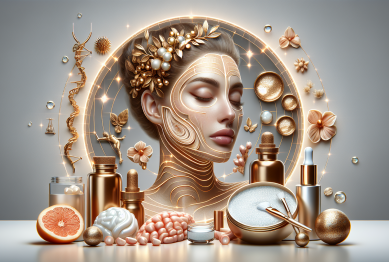In the pursuit of creative success, many of us fall into the trap of perfectionism. We believe that by refining, editing, and adjusting every detail, we will create something truly original. But you can’t edit your way into originality. True creativity doesn’t come from endlessly polishing an idea until it’s “perfect”; it comes from embracing imperfections, taking risks, and allowing ideas to evolve in unexpected ways.
We’ll explore why originality cannot be achieved through endless editing, how embracing imperfection is key to creative success, and why you should focus on the process, not just the outcome.

Why Editing Alone Can’t Spark Originality
Editing is an essential part of the creative process. It helps us refine our ideas, improve clarity, and make our work more impactful. However, editing alone cannot lead to true originality. Here’s why:
-
Over-editing Can Stifle Creativity
The more we focus on editing and perfecting every detail, the more we risk stripping away the raw energy and originality of our ideas. Editing too soon can cause us to fixate on minor details while losing sight of the bigger picture. Instead of focusing on the creation of new and original ideas, we focus on polishing what’s already there. -
Creativity is About Exploration, Not Perfection
Originality often comes from exploring new possibilities and allowing ourselves to fail along the way. When we limit ourselves to editing, we are prioritizing the end product over the creative journey. True creative breakthroughs come when we step outside of our comfort zones and allow ideas to develop freely without the constraints of perfectionism. -
Original Ideas Often Emerge in the Messiness of First Drafts
The first draft of any creative work—whether it’s writing, art, music, or a business idea—is often messy and imperfect. It’s in the raw, unfinished state that we discover new angles, possibilities, and solutions. When we focus too much on editing early in the process, we prevent ourselves from reaching that creative state. The key is to allow the idea to take shape naturally before obsessing over making it perfect. -
Perfectionism Leads to Paralysis
The desire to edit and perfect every detail can lead to creative paralysis—a state where we are too afraid to move forward because we’re trying to make everything “just right.” This mindset can hinder innovation and delay the execution of ideas. The need for perfection keeps us stuck in a loop of editing and refining, preventing us from taking action and putting original ideas into practice.
For more insights into how perfectionism can hinder creativity, check out this article on Harvard Business Review.
Embracing Imperfection as a Path to Originality
So, how do we break free from the cycle of perfectionism and move towards true creativity? By embracing imperfection. Here’s why allowing ideas to evolve naturally is essential for originality:
-
Allowing Room for Experimentation
When we stop focusing on perfection, we give ourselves permission to experiment and try new things. Experimentation is messy and unpredictable, but it’s through this process that we make surprising discoveries. Original ideas often come from the unexpected places we encounter while experimenting. The more freedom we give our ideas to grow, the more likely we are to stumble upon something truly innovative. -
Developing Complexity
Many of the most innovative solutions come from complex problems that require more time and thought to unravel. Unfinished thoughts and rough ideas allow us to dive deeper into complexity, helping us connect disparate pieces of information that might seem unrelated at first. This process of continuous development enables richer, more sophisticated outcomes. -
Improving Problem-Solving Skills
When we leave a thought unfinished, it challenges us to think critically and analyze the problem from multiple perspectives. Unfinished thoughts encourage perseverance, forcing us to stay engaged with the problem and find multiple solutions before we arrive at a final answer. This iterative process strengthens problem-solving abilities over time.
You can also explore how embracing imperfection can unlock your full creative potential in our post on Creative Freedom Through Flexibility.
The Role of Editing in the Creative Process
Editing still plays a crucial role in the creative process, but it must come after the ideas have had time to mature. Once you’ve explored your idea, taken risks, and allowed it to evolve, editing becomes a tool for refining and sharpening your vision, not a means of forcing perfection.
-
Polishing, Not Constricting
The key to editing is to polish your ideas rather than constrict them. Once you’ve developed a strong concept or rough draft, editing helps clarify and enhance your vision, but it shouldn’t erase the originality that came from the initial creative spark. Editing should enhance, not restrict, your creative voice. -
Shaping, Not Defining
Editing helps shape the final form of your idea, but it should never define it. The essence of your idea remains intact, even after the editing process. Editing is about fine-tuning—removing excess, tightening your message, and making your idea clearer and more impactful, but it should never overshadow the creative process that came before it.
To learn more about how editing can enhance creativity, check out our detailed guide on The Art of Editing for Creatives.
How to Focus on the Process, Not Just the Outcome
Instead of focusing on the final product or trying to perfect every detail from the start, shift your focus to the creative process. Here’s how:
-
Prioritize Creativity Over Perfection
Focus on the act of creation rather than the end result. Allow yourself to get messy with your ideas, experiment, and try new things without the pressure of achieving perfection. -
Trust the Process
Creative work is not about getting everything right on the first try. Trust the process, and know that each stage of development brings you closer to originality. Allow your ideas to evolve naturally and trust that the final result will be better for having embraced the journey. -
Accept Imperfection as Part of Growth
Understand that imperfection is a natural part of the creative process. Rather than trying to eliminate mistakes, embrace them as part of the learning and development of your ideas. Imperfection is what makes your work unique and original.
Conclusion
You can’t edit your way into originality. True creative breakthroughs come from allowing ideas to grow and evolve organically, without the constraints of perfectionism. Embrace imperfection, take risks, and trust the process. By giving yourself permission to be imperfect, you’ll unlock the true potential of your creativity and originality.
The next time you feel the urge to refine an idea too early, remember that the best work often comes from allowing yourself to experiment, fail, and evolve. True originality is found in the process, not the perfection.
References:
-
-
Harvard Business Review. “How Routine Can Boost Creativity.” Harvard Business Review.
-
Forbes. “How Establishing a Routine Can Enhance Creative Thinking.” Forbes.
-
Psychology Today. “The Role of Routine in Creative Success.” Psychology Today.
-









